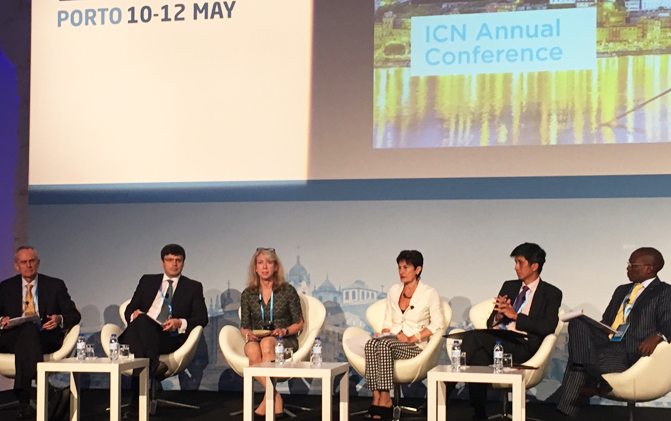ICN 2017: Advocacy Strategy in Traditional and New Markets

Delegates from the Competition Commission of Singapore (“CCS”) attended the International Competition Network (ICN) Annual Conference 2017 in Porto, Portugal from 10 – 12 May 2017. The Annual Conference aims to take stock of the work done by the member agencies during the past year and as a forum for competition agencies and non-governmental advisors to share experience and discuss topics of interest. As part of the ICN Steering Group, CCS’s chief executive, Mr. Toh Han Li spoke at one of the plenary sessions titled “Advocacy Strategy in Traditional and New Markets: Which Differences”. He shared on some of the challenges in planning and implementing advocacy strategies in new and nascent markets in which competition authorities may struggle to grasp an understanding of the emerging business models and innovations and their impact on the competitive dynamics as opposed to “traditional” markets whose features are relatively well-known.
In discussing Singapore’s experience in dealing with some of the challenges in these new markets, Mr. Toh elaborated on the various advocacy tools that CCS employs – for example conducting in-depth market studies/inquiries in these novel markets; participating in cross-governmental workgroups or taskforce to share experiences or to provide opinions and advices to Government agencies on policy issues. During the panel, Mr. Toh commented on the impact of disruptive technologies on the taxi industry in Singapore and shared that certain necessary regulations had to be imposed on the taxi disruptors. Mr. Toh also discussed the challenges arising from the proliferation of e-commerce activities and the interaction between the regulated and non-regulated sectors in last-mile delivery of parcels and posted articles. He further shared with the audience on the Government’s efforts to improve the efficiency of last mile delivery and improve productivity in the domestic logistics sector in Singapore, in particular with the announcement of the development of a nationwide federated locker system.